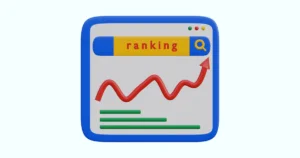Certainly! Technical SEO refers to the optimization of a website’s technical elements to improve its search engine visibility and performance. It involves making changes and adjustments to the website’s infrastructure, code, and server settings to ensure that search engines can crawl, index, and understand the site effectively. Here are some key aspects of technical SEO:
Website Speed
Fast-loading websites tend to have better search engine rankings. Optimizing images, using caching techniques, minimizing code, and leveraging content delivery networks (CDNs) can help improve website speed.
Mobile-Friendliness
With the increasing use of mobile devices, it’s essential for websites to be mobile-friendly. Responsive design, which adapts to different screen sizes, is crucial for providing a positive user experience and achieving higher rankings.
XML Sitemaps
Creating and submitting an XML sitemap helps search engines understand the structure of your website and index its pages more efficiently. It should include all relevant URLs and be regularly updated.
Robots.txt
The robots.txt file tells search engine bots which pages to crawl and which ones to exclude. Properly configuring the robots.txt file ensures that search engines can access and index the important parts of your site while avoiding sensitive or duplicate content.
Canonical URLs
Canonicalization helps prevent duplicate content issues by specifying the preferred version of a URL. Implementing canonical tags correctly ensures that search engines understand the canonical version of a page and index it accordingly.
URL Structure
Using descriptive and user-friendly URLs is beneficial for both search engines and users. Including relevant keywords and organizing the URLs in a logical manner can improve SEO and make the site more understandable.
SSL/HTTPS
Implementing SSL certificates and using HTTPS encryption is crucial for website security and user trust. Additionally, search engines prioritize secure sites in their rankings, making SSL/HTTPS an important aspect of technical SEO.
Structured Data Markup
Adding structured data markup (such as Schema.org) to your website’s HTML helps search engines understand the content and context of your pages. It can enhance search results with rich snippets, improving click-through rates.
Crawling and Indexing
Ensuring that search engine bots can access and crawl your website effectively is vital. Checking for crawl errors, optimizing internal linking, and using tools like XML sitemaps and robots.txt can help control how search engines crawl and index your site.
Site Architecture
A well-structured website with logical navigation and hierarchical organization makes it easier for search engines to understand and index the content. Using categories, subcategories, and breadcrumbs can enhance site architecture.
Conclusion
Remember that technical SEO is just one aspect of overall SEO, which also includes on-page optimization, content creation, link building, and other strategies. It’s important to have a holistic approach to SEO to achieve the best results in search engine rankings and user experience.
Also read, Off Page SEO Boost Your Websites Rankings

